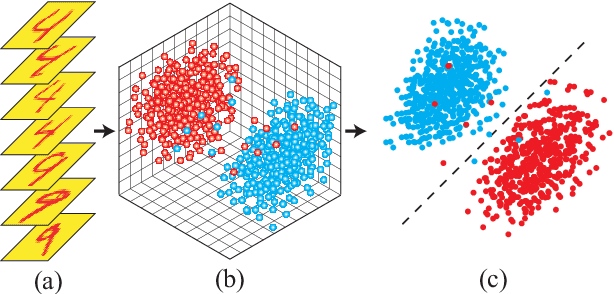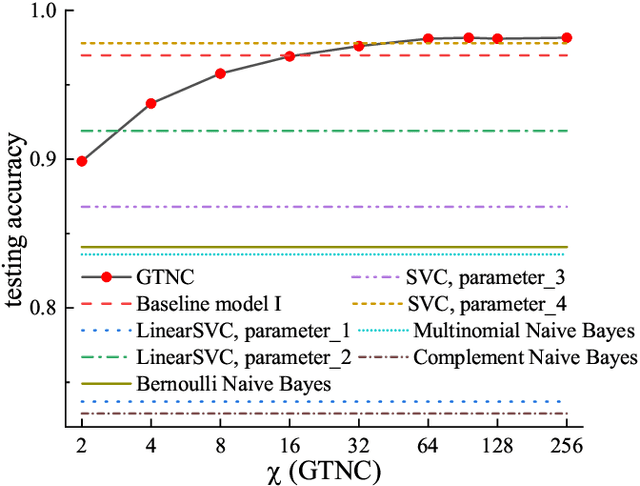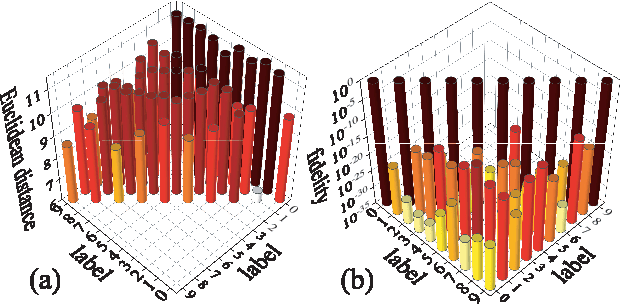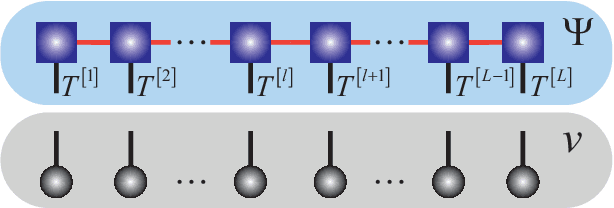Generative Tensor Network Classification Model for Supervised Machine Learning
Paper and Code
Mar 26, 2019



Tensor network (TN) has recently triggered extensive interests in developing machine-learning models in quantum many-body Hilbert space. Here we purpose a generative TN classification (GTNC) approach for supervised learning. The strategy is to train the generative TN for each class of the samples to construct the classifiers. The classification is implemented by comparing the distance in the many-body Hilbert space. The numerical experiments by GTNC show impressive performance on the MNIST and Fashion-MNIST dataset. The testing accuracy is competitive to the state-of-the-art convolutional neural network while higher than the naive Bayes classifier (a generative classifier) and support vector machine. Moreover, GTNC is more efficient than the existing TN models that are in general discriminative. By investigating the distances in the many-body Hilbert space, we find that (a) the samples are naturally clustering in such a space; and (b) bounding the bond dimensions of the TN's to finite values corresponds to removing redundant information in the image recognition. These two characters make GTNC an adaptive and universal model of excellent performance.
 Add to Chrome
Add to Chrome Add to Firefox
Add to Firefox Add to Edge
Add to Edge